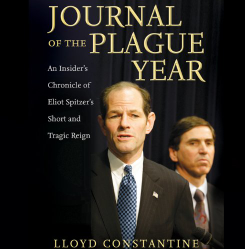As your hopelessly liberal and optimistic blogger last posted, great assistance in surviving the next four years will come from the permanent federal work force. They number roughly 2.9 million and can be counted on to competently deliver the core of many good programs and laws that do not fundamentally change as presidential administrations come and go. Beyond mere survival there is comfort in the progress that will be made by state and local government during the Trump years.
The electoral college that recently bit us in the ass (also in 2000 and five times in our history) is but one aspect of constitutional federalism that gives the states tremendous power to act on behalf of their citizens and in some respects the nation as a whole, when the federal government defaults.
States’ activism and leadership will take two basic forms. They will enact good and strong laws and programs if paralysis continues to prevail at the federal level. Indeed, many hope that Chuck Schumer will be even more skilled at obstruction than Mitch McConnell has been during the Obama years – further widening the field for state innovation.
The states can also enforce existing law, mainly their own progressive programs but also many federal policies that permit or rely upon state enforcement.
 During Ronald Reagan’s eight years, the federal government substantially abandoned many traditional areas of government law and policy enforcement. For example, very very little was done by the Reagan Civil Rights Division, its various consumer and environmental protection agencies
During Ronald Reagan’s eight years, the federal government substantially abandoned many traditional areas of government law and policy enforcement. For example, very very little was done by the Reagan Civil Rights Division, its various consumer and environmental protection agencies
and its antitrust law enforcers. What was done by Reaganites in that 1981-1988 period was to drastically downsize, demean and trivialize agencies that had steadily enforced the law for decades on a non and bi-partisan basis. With that void the states moved in and enforced both state and federal law so forcefully that in June 1988, toward the end of the Reagan years his attorney general, Ed Meese, told me and my boss, New York A.G., Bob Abrams, that “when we said we wanted to return power to the states we had no idea that you would take that invitation so seriously.”
When George H.W. Bush took office in 1989 his appointees in these and many other areas immediately reached out to their state counterparts, calling for an armistice and seeking cooperation in many new joint federal/state enforcement efforts. The same type of state activism should and will happen this time. Look around, it has already started.
 Liberals queuing up to pay upward of $1000 to see “Hamilton,” most likely know, but if not will learn, that the federalists, Madison, Jay and Hamilton helped cut a deal that gave a Wyoming resident more than 16 times the voting power in the U.S. Senate as a Californian and yes, in that same spirit, the Electoral College. But that compromise also preserved a decent amount of the sovereignty each state had during the short/nasty/brutish years of the Articles of Confederation. And with that power the states have stepped up when necessary. They understood that while federalism is a system in which state and federal governments each strive to achieve the desires of their joint constituents it’s not and wasn’t intended to be a suicide pact.
Liberals queuing up to pay upward of $1000 to see “Hamilton,” most likely know, but if not will learn, that the federalists, Madison, Jay and Hamilton helped cut a deal that gave a Wyoming resident more than 16 times the voting power in the U.S. Senate as a Californian and yes, in that same spirit, the Electoral College. But that compromise also preserved a decent amount of the sovereignty each state had during the short/nasty/brutish years of the Articles of Confederation. And with that power the states have stepped up when necessary. They understood that while federalism is a system in which state and federal governments each strive to achieve the desires of their joint constituents it’s not and wasn’t intended to be a suicide pact.



0 Comments